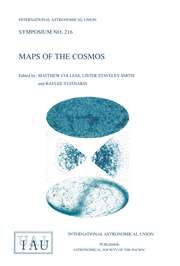No CrossRef data available.
Article contents
Microarcsecond Astrometric Interferometry
Published online by Cambridge University Press: 04 August 2017
Abstract
A small astrometric optical interferometer, Mini-POINTS, which would fit fully assembled in about one-third of the Shuttle bay, could measure the angle between stars about 90° apart. For 10th magnitude stars, an observation time of about 20 minutes would yield a measurement uncertainty of 5 microarcseconds. When compared to an astrometric telescope of comparable size which observes the same target for the same period of time, such an interferometer would achieve a greater accuracy by two to three orders of magnitude. Five design criteria lead to an instrument that achieves high precision by employing photon statistics for fringe splitting and achieves high accuracy by means of continuous internal metrology with laser interferometers. The high throughput of Mini-POINTS permits a mission design that addresses a wide variety of scientific questions.
Information
- Type
- IV. Interferometry
- Information
- Symposium - International Astronomical Union , Volume 109: Astrometric Techniques , 1986 , pp. 321 - 330
- Copyright
- Copyright © Reidel 1986

